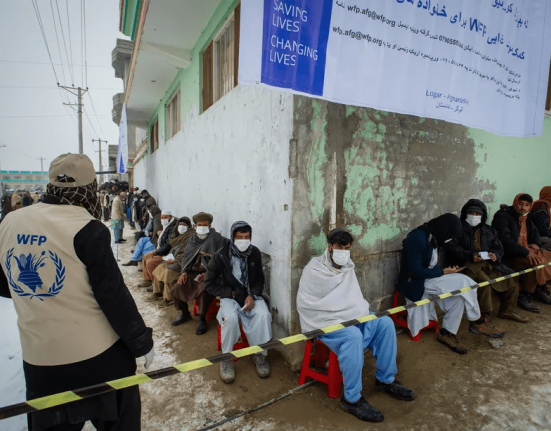
By : Natalie Armbruster , Washington Times
Almost 20 years after Congress passed the 2002 Iraq Authorization for Use of Military Force, and 10 years after the U.S. announced the end of the Iraq War, somehow, Congress is leaving the repeal of the 2002 AUMF on the cutting room floor.
After repeated delays for a final vote on the National Defense Authorization Act, Sen. Jack Reed, Armed Services Committee chair, announced late Monday night that Sen. Tim Kaine and Sen. Todd Young’s proposed amendment to repeal Iraq War authorizations would not be included in the NDAA, despite “garnering more than 60 votes” and passing the House.
Washington should address the 2002 AUMF today — not in another year or decade. We should repeal the outdated AUMF and withdraw all U.S. troops from Iraq.
Since 2011, Congress has unsuccessfully introduced more than 20 bills and amendments to repeal the 2002 Iraq AUMF. The last time Congress repealed a military authorization was in 1971 for Vietnam.
The reasoning behind the Iraq AUMF was flawed in 2002 and remains so today. When originally passed, the belief was that the Saddam Hussein regime was close to gaining nuclear weapons and the “capability and willingness to use weapons of mass destruction against other nations and its own people.”
In 2002, the U.S. invaded Iraq firstly to eliminate Iraq’s nuclear, biological and chemical weapons programs and, secondly, to overthrow Hussein.
As was proven later, Hussein never possessed nuclear weapons or a program of note, and in 2003 his regime was toppled. So how can one even pretend that the 2002 Iraq AUMF is applicable today? As House Armed Services Committee Chair Adam Smith argued, “Circumstances on the ground in Iraq have changed dramatically. … We now count the democratic Iraqi government as our partner in our counterterrorism mission — as such, it is time to repeal this authority.”
Notably, the AUMF does not specify the threat posed by the Hussein regime, nor does it include a geographic or temporal constraint. Thus, 20 years later, all the AUMF achieves is successfully propping open a door for further executive abuse. Senate Majority Leader Chuck Schumer rightly said that maintaining the 2002 AUMF risks the “danger of a future administration reaching back into the legal dustbin to use it as a justification for military adventurism.”
Rep. Barbara Lee said the 2002 AUMF “no longer serves any operational purpose.” This makes sense: Since the Iraq War ended in 2011, no administration has cited the 2002 Iraq AUMF as the only justification for a military operation.
House Foreign Affairs Committee Chair Gregory W. Meeks described the repeal as “crucial because the executive branch has a history of stretching the … legal authority” as it “has already been used as justification for military actions against entities that had nothing to do with Saddam Hussein’s Ba’athist dictatorship,” nor were they even relevant or present in 2002.
Instead, since 2011, the Iraq AUMF has only been used over broadly to justify the continued U.S. missions in Iraq and Syria against ISIS.
Given these facts, the U.S. should take the revocation of the 2002 Iraq AUMF one step further and actually withdraw the nearly 2,500 U.S. troops that remain in Iraq as well. The U.S. officially declared the Iraq War over in 2011, after spending $2 trillion and losing over 300,000 American and Iraqi lives. The executive branches of the past 10 years have spent too long hiding behind the 2001 and 2002 Iraq AUMF, and, as a result, U.S. troops reentered Iraq in 2013 and remain in Iraq a decade after the war ended, defending no compelling U.S. interest. The Iraq War has long been over.
The U.S. has also eliminated ISIS’ territorial caliphate, leaving ISIS fighters scarce, scattered and impotent. Under the grounds of the 2001 and 2002 AUMF, the ground troop presence in Iraq is just as unnecessary as it was when we withdrew in 2011. Our presence today only risks American lives.
Nevertheless, the same congressmen and administration officials that adamantly support repealing the 2002 AUMF have fallen silent on the natural subsequent conclusion: We must pull our servicemen and women out of Iraq. Instead, Congress is looking the other way as President Biden announces the end of the combat mission in Iraq, a change that is solely nominal, as our 2,500 troops will still remain within Iraq’s borders for vague advising and training purposes.
Dan Caldwell, of Concerned Veterans for America, correctly argued, “regardless of whether their deployment is called a combat mission, U.S. troops will remain under regular attack as long as they remain in Iraq.”
The 2002 Iraq AUMF and the U.S. troop presence in Iraq both do more harm than good in the long term for U.S. interests. The U.S. should push to end both the forever wars and the justifications that enable them to persist.

Almost 20 years after Congress passed the 2002 Iraq Authorization for Use of Military Force, and 10 years after the U.S. announced the end of the Iraq War. Washington should address the 2002 AUMF today — not in another year or decade. We should repeal the outdated AUMF and withdraw all U.S. troops from Iraq.
















